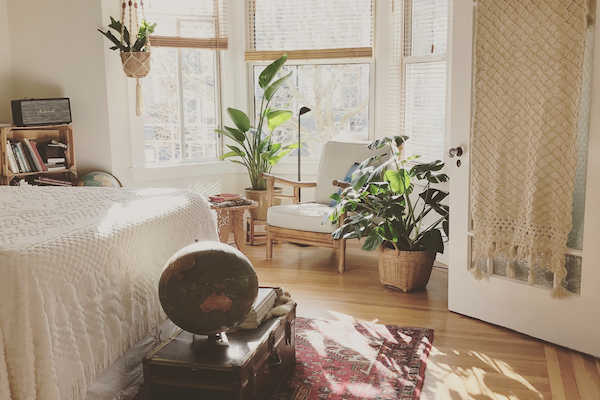It’s no secret that the way we live has an impact on the environment, and making little changes towards a greener lifestyle can cause a genuine difference in the long term. By now most of us know the importance of bringing tote bags with us to the grocery store and drinking from reusable water bottles instead of buying bottled water, but what about around the home? Luckily, there are also plenty of steps we can take to make our houses more environmentally friendly. Here are some top tips to get you started.
Add insulation
For many households, particularly those in colder climates, heating is a big expenditure and also a large part of our carbon footprint. There are several options available for making your property more efficient at retaining heat, which vary in both cost and impact. For example, you could begin with small additions such as draft excluders and keyhole covers for the doors, and hanging thicker curtains to prevent heat loss through the windows would enable you to turn down the thermostat. If you own your own home, you might want to consider investing in wall, attic, and basement insulation to feel more of a difference and truly go green.
Consider solar panels
If you’re able to, installing solar panels in your home and generating your own electricity from the sun is a great way to be more environmentally friendly. Although it can be a large cost up front, over time it can pay for itself by saving you money on your bills. For those who are unsure about making the commitment, many solar companies in Tucson will give you a free assessment and estimate to help you decide. Having solar panels can even increase the value of your property, so it’s definitely an option worth considering if you’re a homeowner.
Choose energy-efficient appliances
When you next have to buy or replace one of your home appliances—whether it’s a washing machine, dishwasher, or TV—be sure to choose the most energy-efficient model you can. This will make it cheaper to run and be better for the environment. There are also changes you can make to the way you use your existing appliances, such as turning them off at the wall when they’re not in use and running them on eco-mode if possible. Other tips include only using the dishwasher and washing machine when you have a full load, and only boiling the amount of water that you actually need.
Reuse and recycle
Most of us are already well aware of the importance of recycling, but it’s worth stating again that you should recycle as much of your household waste as possible. In a similar vein, rather than always buying new items, consider purchasing second-hand products from a thrift store. You never know what cool bargains you might find! Another top tip is to try and mend those items that you already have when they rip or break, instead of immediately replacing them with new ones. There are plenty of tutorials on YouTube these days to help you pick up the necessary skills!


